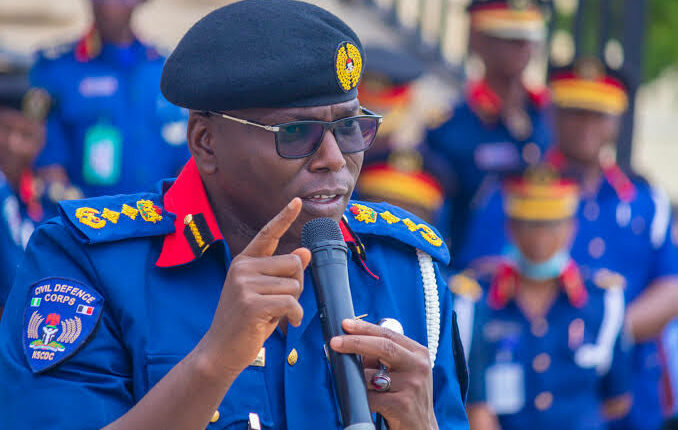The Nigeria Security and Civil Defense Corps (NSCDC), Dr Ahmed Audi, says has revealed that the welfare of personnel of the corps has continued to receive major boost under his administration.
According to the Commandant General of the NSCDC Dr. Ahmad Audi when he featured on the News Agency of Nigeria Forum in Abuja, efforts were being made to clear the backlog of promotion arrears of about six years.
He said:
“People were hanging ranks but were not getting the commensurate pocket anointing that is equivalent to the rank.

“So we started working on it and God helped us Mr President approved the payment of four years salary arrears, which we did, remaining two years.
“We are waiting for the balance and as soon as we get the balance, we will pay those that are involved.
“We have also introduced some welfare packages in terms of providing housing for our staff.
“We have conducted ground-breaking ceremony for our personnel houses through mortgage,” Audi said.
The NSCDC boss further said the corps had commenced payment of insurance claims like group accident insurance to personnel who sustained injuries in operations resulting in permanent deformity.
He also said that payment of compensation to families of personnel who died in active service had commented under the group life insurance.
“For Group life insurance, we have paid over N200 million through the Office of the Head of Civil Service of the Federation, which for the past seven years has not been done.
“Staff morale has been well boosted and that is why perhaps you now see that there is higher productivity.
“I didn’t hold the statistics but I think so far within this one year, if I will be correct, I think we have given cheques to over 100 people.
“They are from two of the benefits, that is Group Personnel Accident and Group life insurance.
“Now the group accident are those ones that as a result of their involvement in operation, their duties, they experienced injuries, so we need to compensate them.
“They are more than 200 especially those who are in main operation, those who have been going out, those who are in Niger Delta, those who are in the Northeast, those who are involved in joint operations with the military,” he said.









Leave a Reply